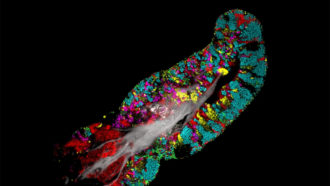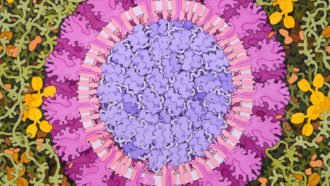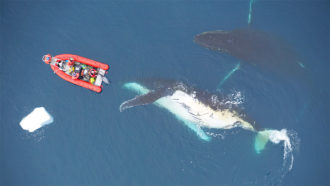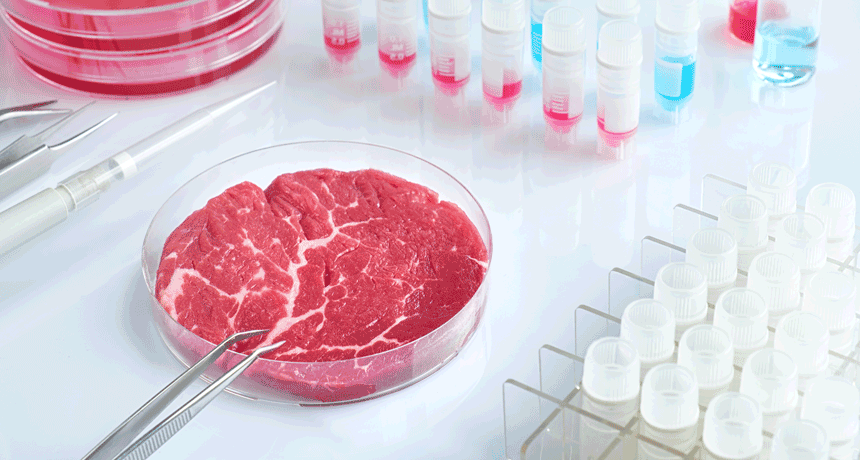MS-LS1-5
Construct a scientific explanation based on evidence for how environmental and genetic factors influence the growth of organisms.
-
 Microbes
MicrobesCheck out the communities of bacteria living on your tongue
Bacteria scraped off the tongue offer a window into how the microbes structure their communities.
-
 Science & Society
Science & SocietyCOVID-19: When will it be safe to go out again?
No one yet knows when social distancing can end. Experts explain we need 'herd immunity,' which won't be easy and may come at a horrific cost.
-
 Environment
EnvironmentDecades-long project is linking our health to the environment
Started in 1959, this California study is one of the oldest ongoing research projects in the world.
-
 Brain
BrainDo you sleep enough to banish unpleasant moods?
A large, long-term study in kids has linked getting too little shuteye with mood and behavior problems.
-
 Earth
EarthStudy appears to rule out volcanic burps as causing dino die-offs
New data on when massive volcanic eruptions happened do not match when the dinosaur mass extinction took place.
-
 Health & Medicine
Health & MedicineSearch speeds up for vaccine against the new coronavirus
Scientists are investigating unusual ways to make drugs to prevent viral infections. One may even be able to treat already sick people.
-
 Health & Medicine
Health & MedicineSerious virus emerges in China and is spreading globally
A new viral infection emerged in December 2019 among people in Wuhan, China. The mystery illness has already killed at least 17 people and sickened many hundreds.
-
 Life
LifeWhy some whales become giants and others are only big
Being big helps whales access more food. But just how big a whale can get is influenced by whether it hunts or filter-feeds.
-
 Microbes
MicrobesGlobetrotting microbes in airplane sewage may spread antibiotic resistance
Along with harder-to-kill microbes, airplane sewage contains a diverse set of the genes that let bacteria evade antibiotics.
-
 Brain
BrainAs teens gain weight, they find high-fat foods less pleasurable
Teens who gained excess weight showed less activity in the brain’s reward center when viewing or tasting foods with lots of fat.
-
 Life
LifeA new spin on lab-grown meat
A technique inspired by how cotton candy is spun could help produce lab-grown meat at a lower cost and on a bigger scale.
-
 Genetics
GeneticsExplainer: How DNA testing works
Lots of companies will now test DNA from people and their pets. How do these gene-sequencing techniques work? We explain.